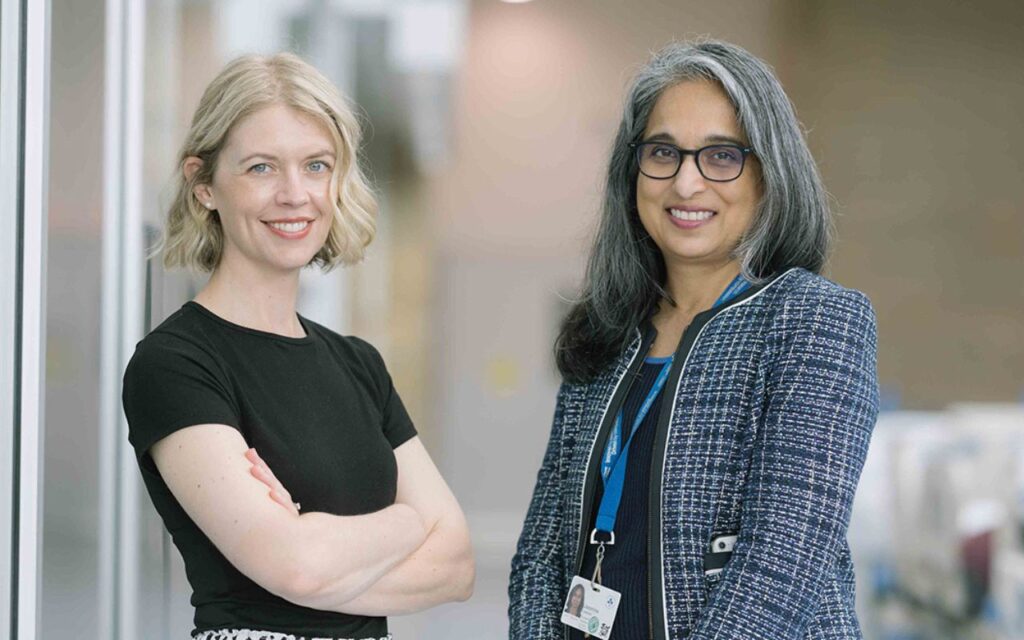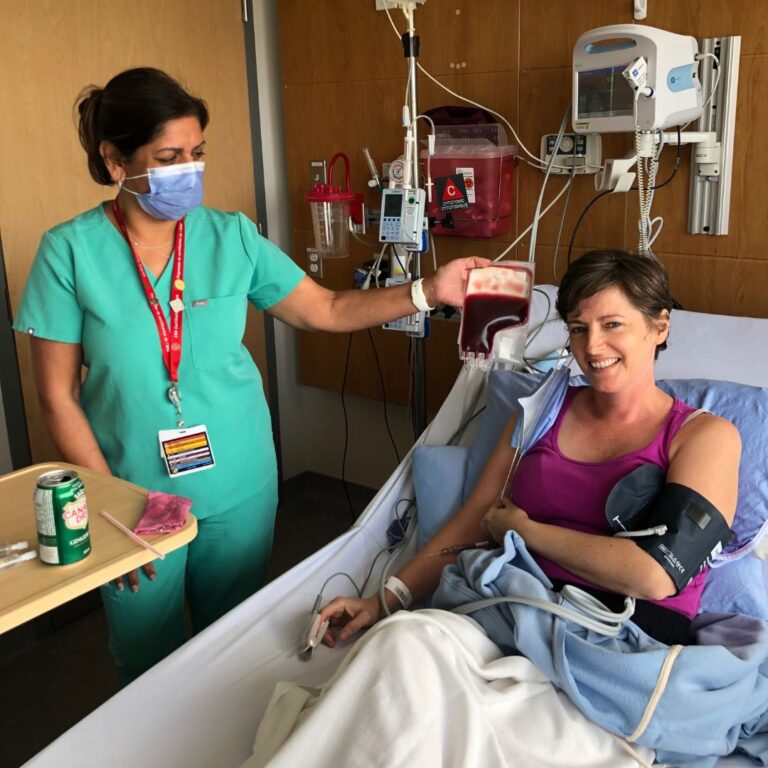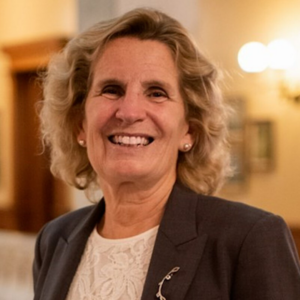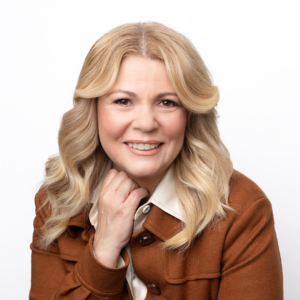Breaking the stigma: How a team in Ottawa is helping transform perinatal mental healthcare in Canada
Mental health20.09.2024

After having a baby or finding out you’re expecting, you might picture days filled with pure bliss and endless joy. However, for some mothers, the reality can be far more complex.
Many women find themselves juggling motherhood with stress, anxiety, and sometimes severe mental health challenges that can develop both during pregnancy and in the months after.
The term “perinatal mental health” covers all of this, referring to the mental well-being of women from pregnancy through to a year after giving birth.
“People often think about postpartum depression, but in fact, there’s a whole range of mood and anxiety disorders that can occur from the onset of pregnancy and throughout,” says Dr. Jasmine Gandhi, Medical Director of the Perinatal Mental Health Program and a psychiatrist at The Ottawa Hospital. “Unfortunately, perinatal mental health has typically not been recognized as a specialty or concern.”
A specialized clinic
That’s why Dr. Gandhi spearheaded the establishment of the Perinatal Mental Health Program at The Ottawa Hospital to better serve women experiencing these challenges.
“Often, there wasn’t any space for mothers to say, ‘I’m really struggling,’ and if they did, the healthcare response was, ‘It’ll pass,’” she says. “That just gets amplified if you’re from any minority, if you’re diverse in your gender in any way, or if you come from a culture where there’s even more mental health stigma around you.”

To put this into perspective, more than one in five women will be affected by some mental health concerns during their pregnancy or postpartum year, including a spectrum of disorders such as depression, anxiety, and obsessive-compulsive disorder (OCD). Often, these can be amplified by hormonal changes during pregnancy, giving birth, getting your breast milk in, and weaning off.
Even before that, adds Dr. Gandhi, if you were struggling with fertility and you’ve been put on hormones to conceive, that can have a profound effect on your mental health, not to mention the sleep cycle changes and social transition that happens as well.
And while family doctors or health clinicians may have some knowledge of these disorders, there is a lot of nuance when it comes to perinatal mental health, she says.
“There’s a lot of diagnostic subtleties when you’re trying to distinguish between what is normal pregnancy or postpartum versus a clinical anxiety disorder or, say, an OCD,” she says. “Unfortunately, there isn’t much training in usual psychiatric residency programs in this area. You might get a few lectures, but it’s only if you seek out the training that you develop that additional expertise.”
At the Perinatal Mental Health clinic in Ottawa, Dr. Gandhi and her team receive about 600 referrals a year for women needing support.
There, they offer psychiatry consultation, diagnosis, follow-up to monitor symptoms, and medication trials throughout the pregnancy and up to one year postpartum. They also provide group therapy, cognitive behavioural therapy, interpersonal therapy, and social workers who assist with social determinants such as housing status and immigration.
“I’m very proud of our team,” says Dr. Gandhi. “It’s some really wonderful women I get to work with, and some great care being done.”

Extending the clinic’s reach
While Dr. Gandhi’s small but mighty team is doing their best to meet demand, they are seeing an increase in the number of women looking for perinatal mental health support, with the COVID-19 pandemic having had a profound impact.
The clinic is also trying to be more mindful of the needs of women of colour and various minorities, but with hundreds of referrals a year and just two psychiatrists serving the community, it can be challenging.
“We don’t serve the diversity that I would like to be serving. Certainly, it’s not reflective of the diversity of the Ottawa area,” she says. “Having said that, that is slowly improving as people become more attuned to perinatal mental health.”
To help extend the reach of the perinatal clinic, Dr. Gandhi and her team launched Ask Masi — Canada’s first perinatal psychiatry access program — just over a year ago.
Based on a model from the University of Massachusetts, the program is a free service for perinatal care providers, including obstetricians, family doctors, midwives, nurse practitioners, and public health nurses, to address patients’ mental health needs by supporting their care providers.
By educating more practitioners through talks, seminars, office visits, and the program’s phone service, where care providers can speak to a perinatal clinician or nurse and receive real-time advice about resources, diagnosis, or screening, patients will receive timelier care, leaving more spots at the perinatal clinic open for more severe cases.
“When we look at our referrals, or the number of women struggling, not all of those people need a psychiatrist,” explains Dr. Gandhi. “There’s so many community resources that are evidence-based and effective that can be implemented much quicker, and through the program, we can provide that support in real-time.”
And so far, the program has received glowing reviews from those who have used it.
“Such a helpful service! I received timely telephone advice to help manage a client’s care and was sent helpful written resources that were easy to pass along,” said one practitioner.
“Very quick and complete response. Thank you very much, it meant my patient did not have to wait long for advice,” said another.
For Dr. Gandhi, that is the exact scenario she was hoping for.
“With this service, we can prevent hospitalization or worsening symptoms for patients by reducing service time. It’s really gratifying,” she says. “I would love to see Ask Masi expanded to more regions, potentially throughout the country. We’re filling a real gap for people, and seeing that initiative grow would be great.”











